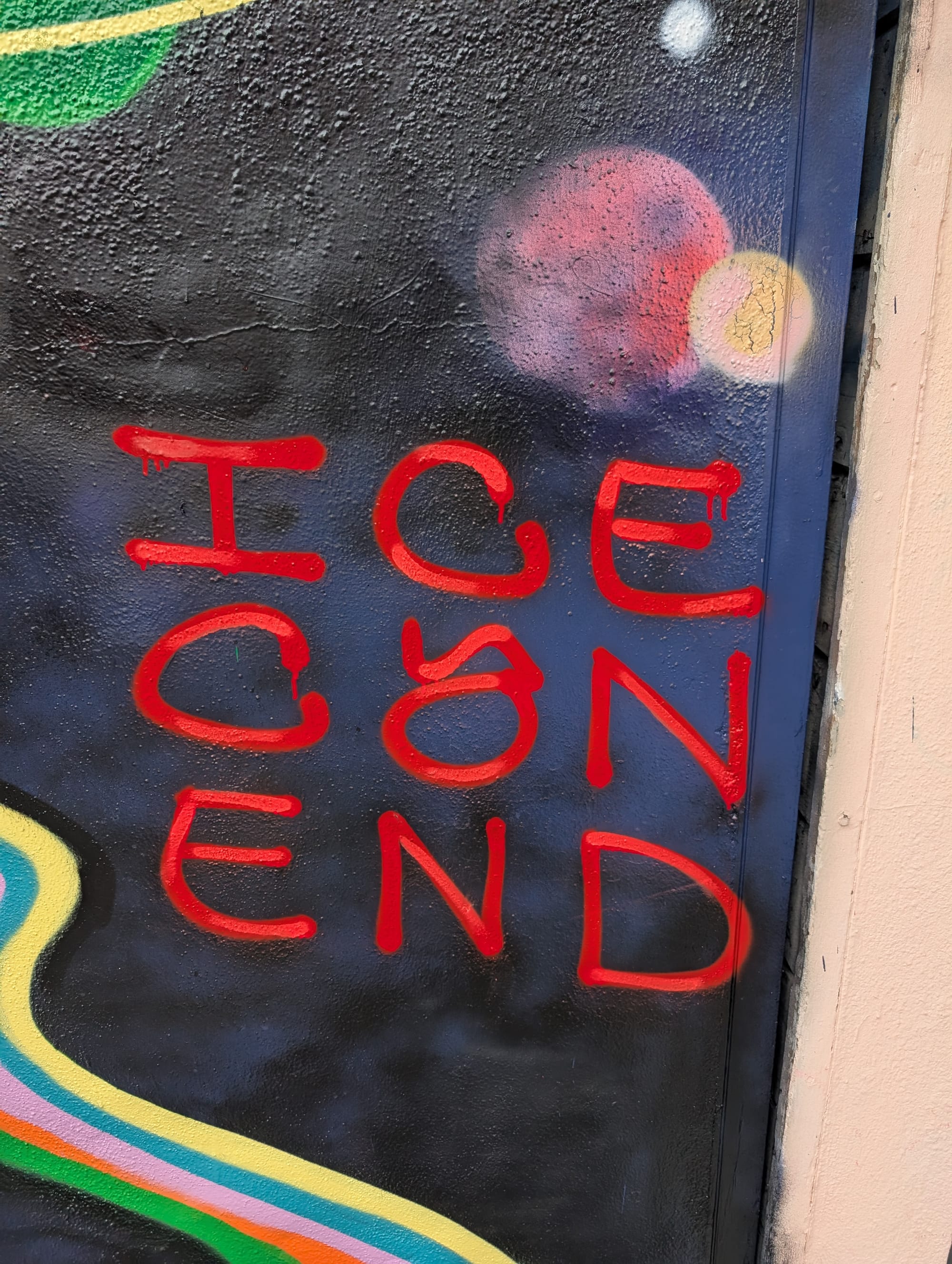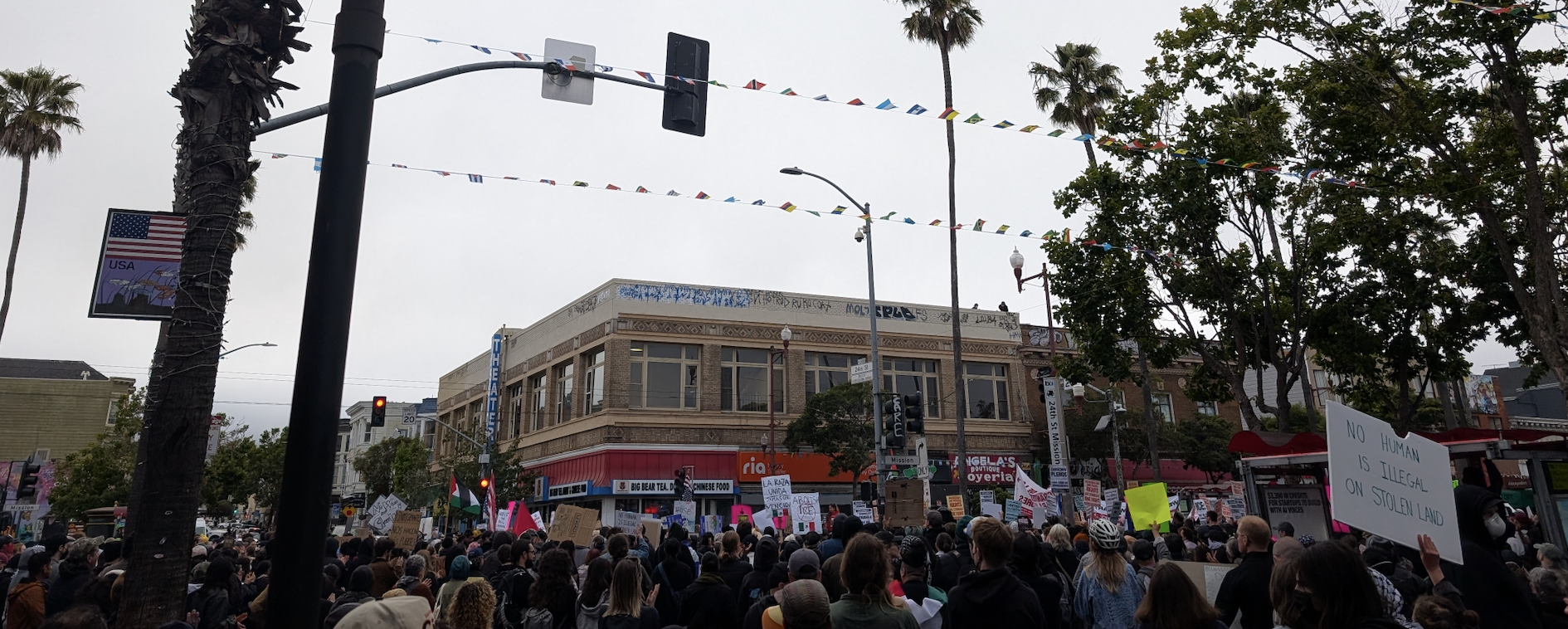At the beginning, the crowd at 24th St. Mission Station was densely compacted enough that it felt like you could look around and take it all in. You could note details like the light applause that followed “we need our white allies,” and the much stronger cheers at “black and brown brothers” and the absolute roar that followed the invocation of the queer community. You could note that there were more Palestinian flags (2) than Mexican flags (1), and that there was something tentative and uncertain in the way the speakers said the same things speakers always say, like a rehearsal no one is recording yet. No one smiling, no joy. The Spanish chants didn't get much traction; a lot more response for “the people united” than for pueblo unido. For all the talk about protesters carrying flags, it seemed worth noting that 24th was already ceilinged with thousands of flag pennants from around the world, placed there by the city.
It felt good to stand in a street calmed of cars, where people in yellow vests were standing, a long block in every direction from the 24th street BART plaza, gently directing traffic away from the crowd. For all the invocations of violence in the discourse—avoid violence, ICE is the real violence, voice of the unheard, etc—the peace of that street, when tons of metal aren’t threatening to crush your bones in it, that was what I was feeling.
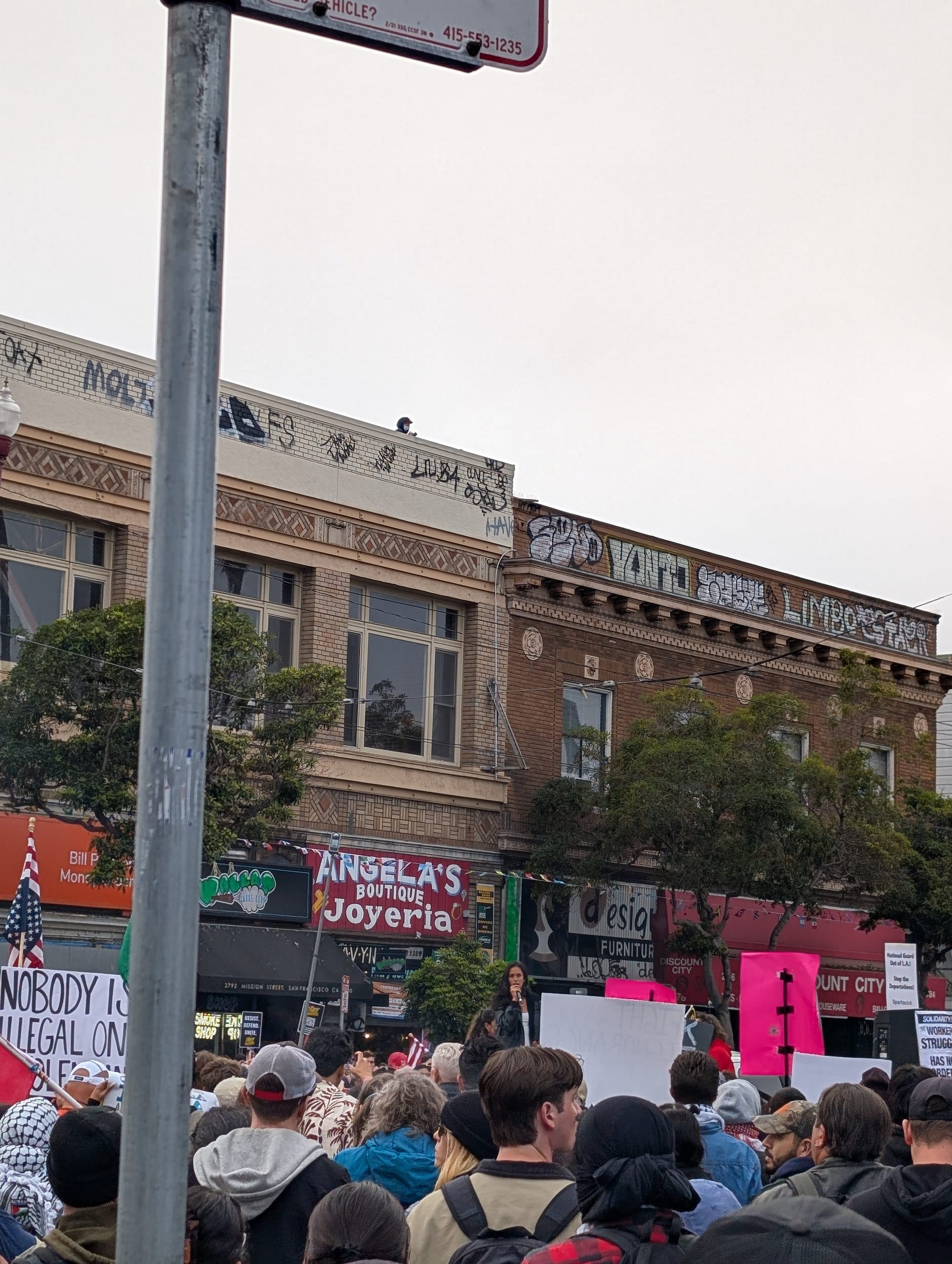
The Mission’s own Jackie Fielder was speaking, mixing utopian invocations of what should be—that which “does not happen in San Francisco”—with the reformist establishment voice that complains that they have just happened, but shouldn’t have. A little too conscious of her role in government, she declared that this is “not the job of just one elected official” and immediately swerved, perhaps feeling how odd that sentence tasted on the tongue, rhetoric just a little bit out of her control. “Here in SF we don't let ICE tear families apart” (don’t we?) and “We do not send riot police on unarmed protesters,” and, uh, don’t we? A moment later, she was talking about the four children who were torn apart—another unfortunate flight of rhetoric, and you knew what she meant, but it felt indicative of the strained line this socialist city supervisor was walking—but when the next speaker came on, and gave everyone permission to shout chinga la migra, the crowd relaxed into it. I could only say it once before I felt just a little too much from it, and had to stop.
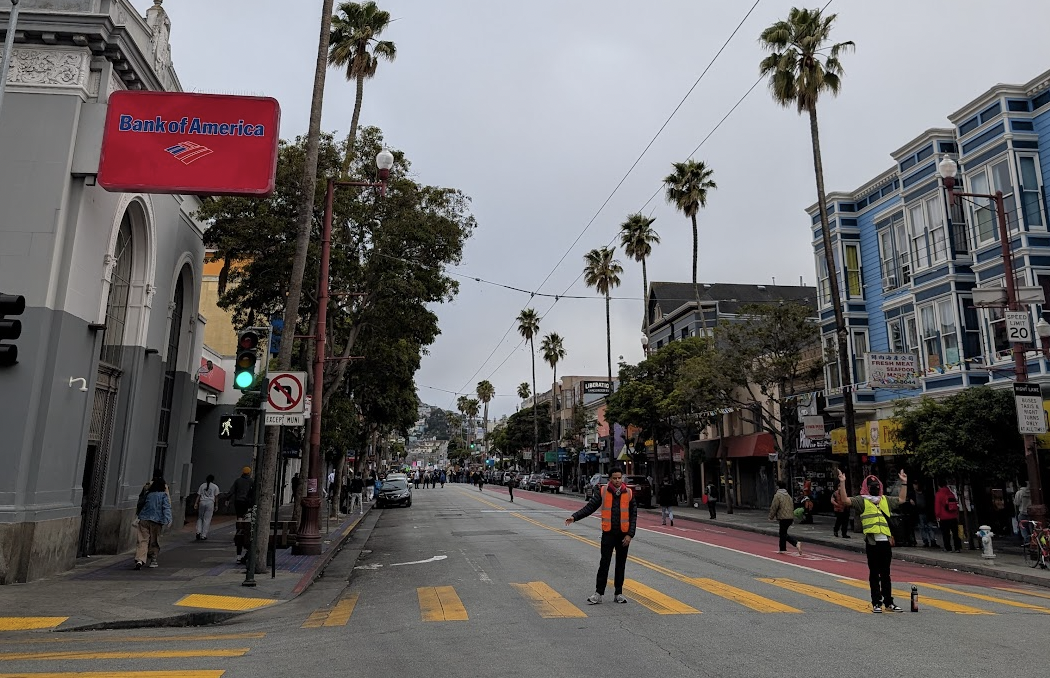
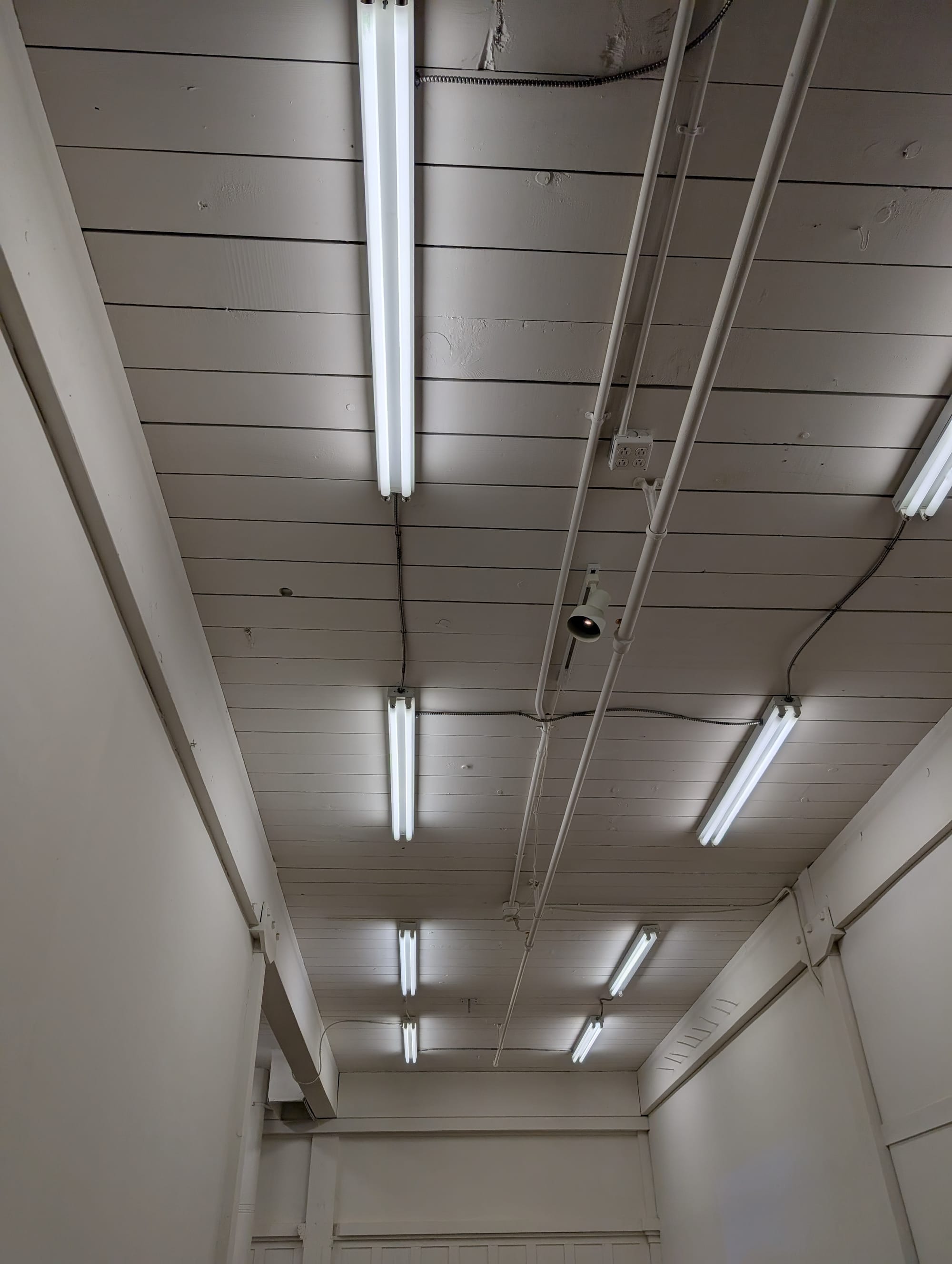
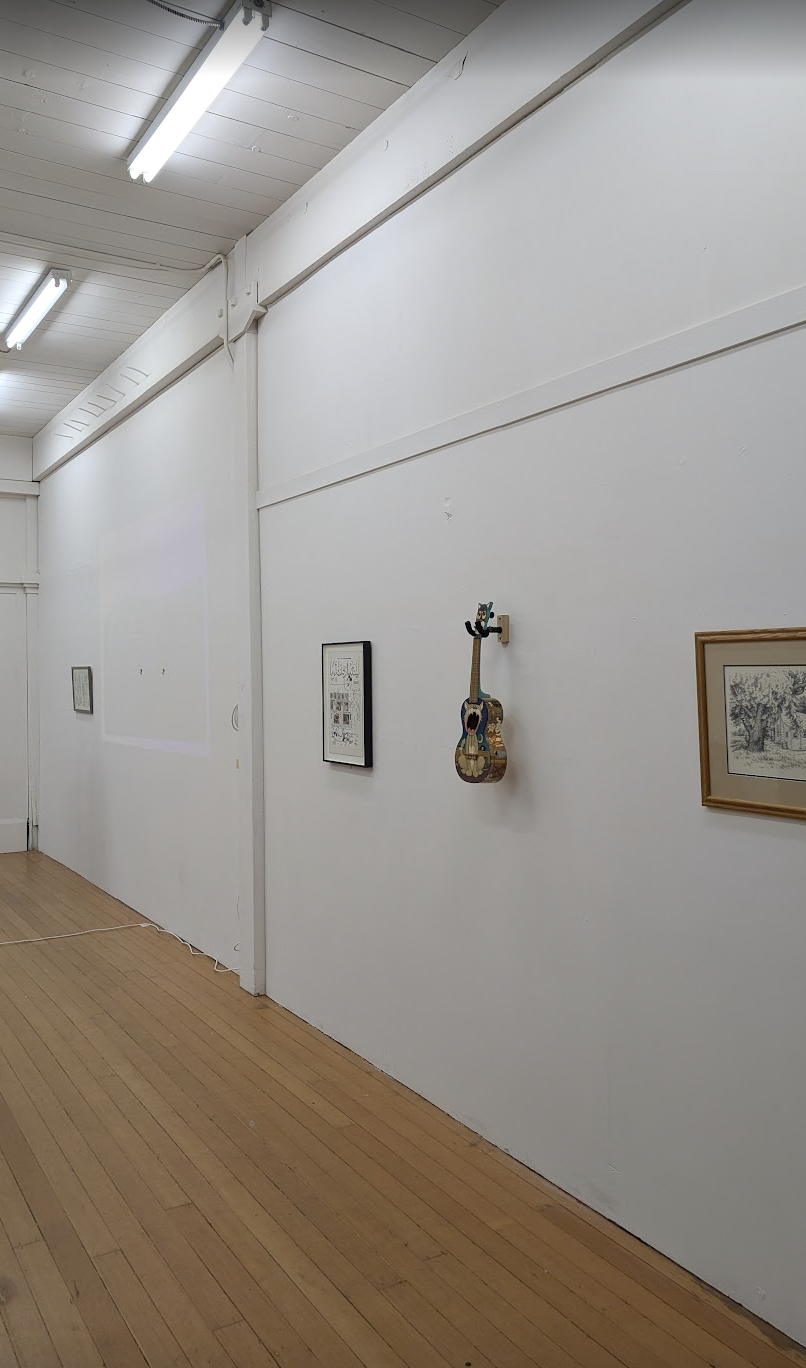
I didn’t stay long. There was a party? A reading? A something, where our comrades at the San Francisco Review of Whatever were doing some west bay things with other good west bay poetry comrades. Walking against the current of more and more people walking to the protest—you could tell by the keffiyehs they wore—until I arrived at the Cushion Works (“located in a building that also houses an active cushion factory as well as artist studios”), where I saw some east bay faces I know (\O/), who asked me about the protest. We talked about the Waymos—lord I’ve seen what you’ve done for LA!—and “were there a lot of people?” as if that was the right question (but what is the right question?).
If the protest had been calling into existence the world that doesn’t exist—to insist that it does, with feeling, and then complain that it doesn’t, yet—the vibe at the Cushion Works was mournful without sorrow. The Back Room was coming to an end, that’s what the party was for; Elisabeth Nicula’s “neither the first nor the last” was invoked, from her lovely essay, in which she announced that “If me and my friends felt like starting a magazine we would call it the San Francisco Review of Whatever,” because it helps to say things before you make them happen. I remember when she published that essay, when I messaged her to tell her that what she said was really great. Neither the first nor the last, I found myself misquoting, in my mind, while listening to Camille Roy’s “Land Behind Baghdad” being read in an Arabic I must assume that few of us understood, and that I’m sure I was not alone in hearing like a liturgical reading in a sacred language you don’t have to understand to feel invoked by, included into, and framed in place by its procession through time. I got a party favor, a compilation of one line from each text The Back Room had published, and they were some great lines.
And then the protest caught up, having followed me up 18th and as the low roar and drums and chanting found its way through the window facing in that direction, you could see a wave of pleasure on the faces in the room (“the protest!” someone murmured through a smile). It was actually easy to slip out—my wine glass was empty, my respects were paid—and it was easy to rejoin the procession that by this time, six blocks later, was all joy, all jubilation, all celebration at what had come into existence in the last hour: the thing all the brown faces on the sidewalks with their phones were recording, that faith in being and collectivity that had felt absent at the start of the march. ICE CAN END said murals on walls, and I believed them now, the smell of incense, chants beyond generalization, every kind of person was there, somewhere, flags waved from balconies, horns, the thing itself, intense cheering, smiles everywhere. In a procession, everyone is neither first nor last.
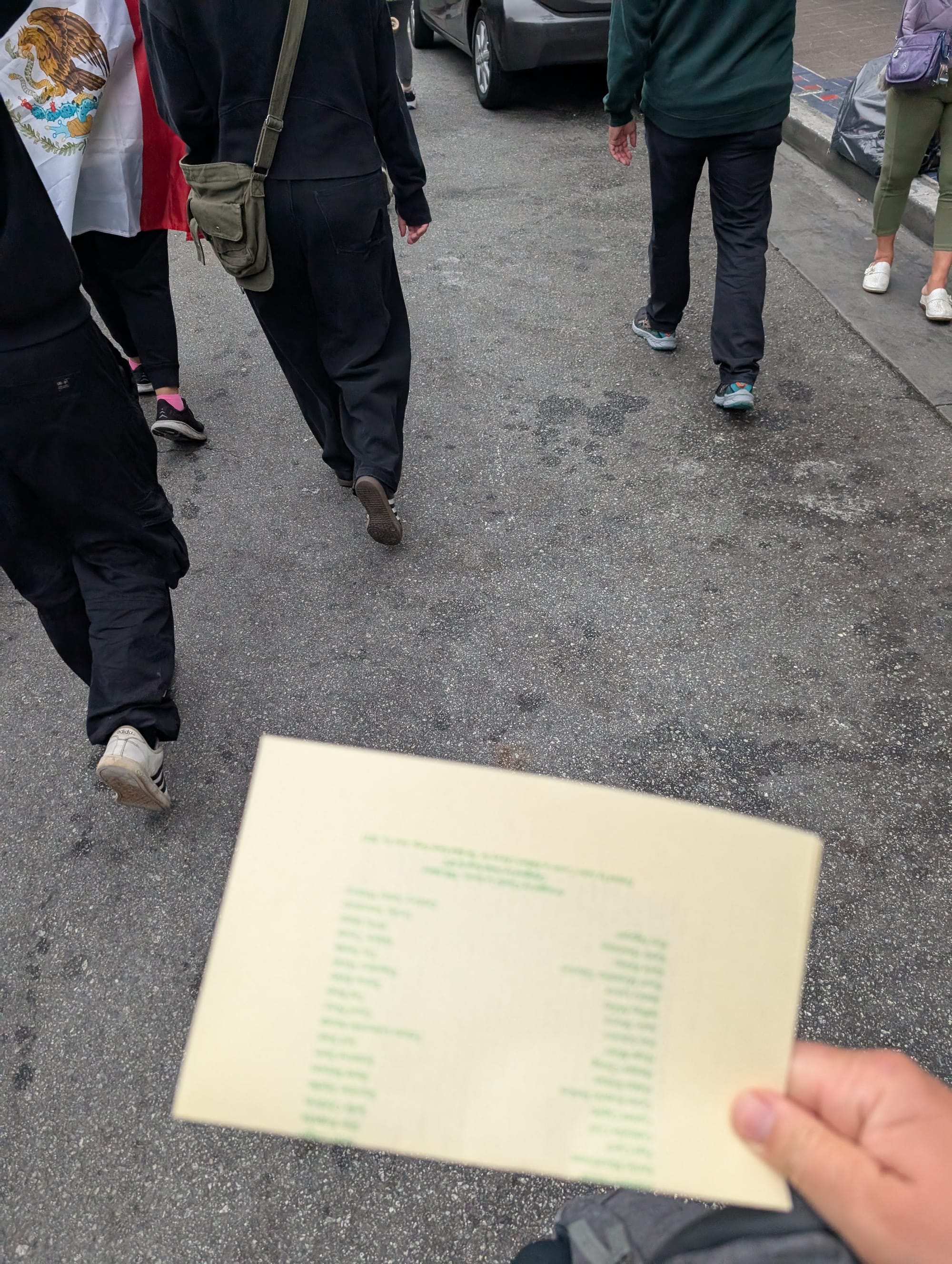
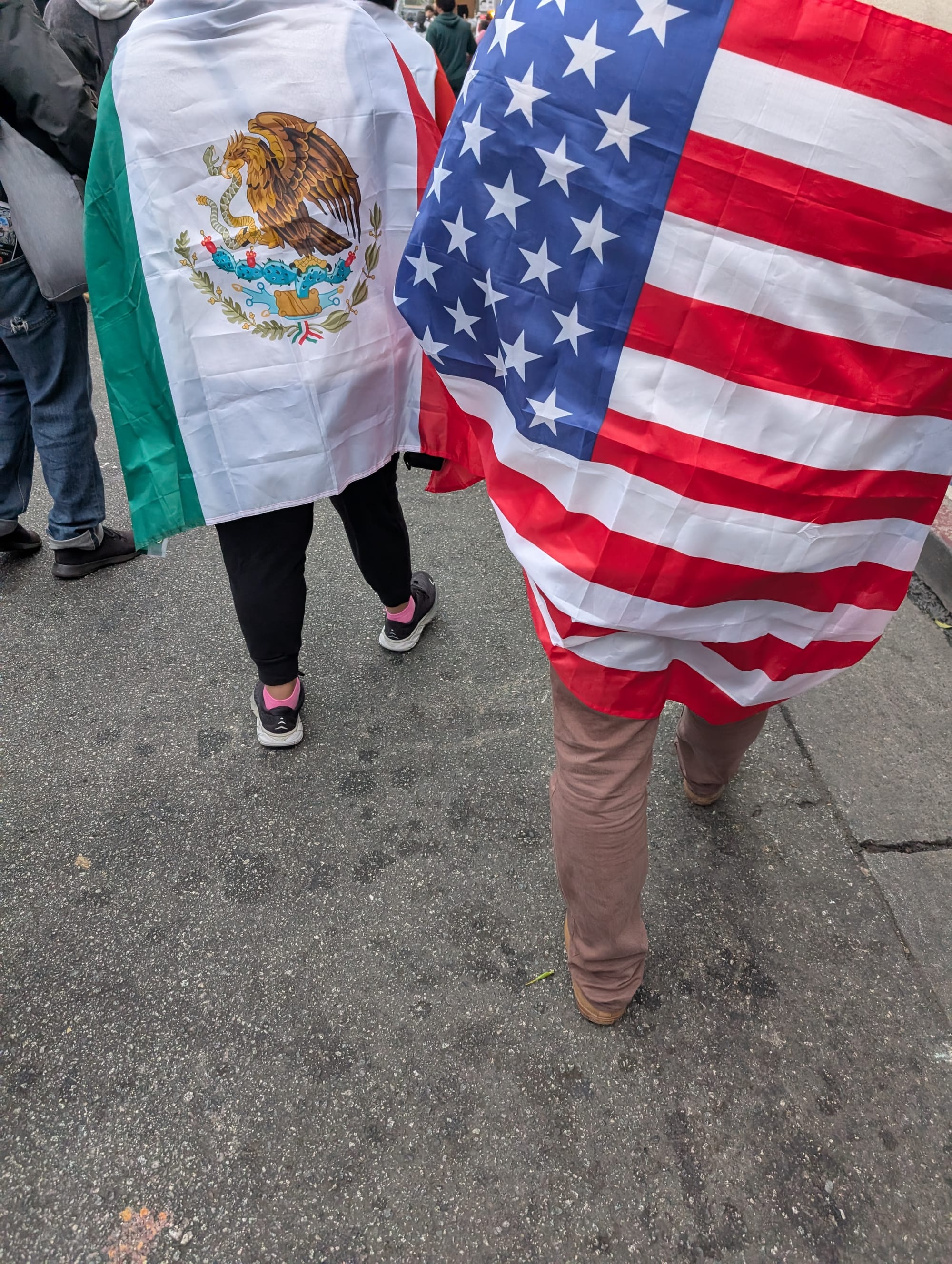
I followed who I took to be a man and woman whose marriage was not marred by the fact that one had a Mexican flag and one had an American. I took a photo of my party favor from the reading, so The Back Room could go to the march too. And then I stopped at 24th, after watching the procession turn left—too long in every direction to say anything about it—and a half dozen white vans followed it up the street, some of them violence prevention teams, some of them sheriffs, some of them parking enforcement, all of them white, internal combustion, and gasoline powered.
On BART back to Oakland, a guy is listening to Fielder’s speech on his phone. A lot of folks with signs, flags, all of them trying to say “I am from here, and all of us are staying” and hoping, praying, that it could be true. I get home before the sun goes down.
